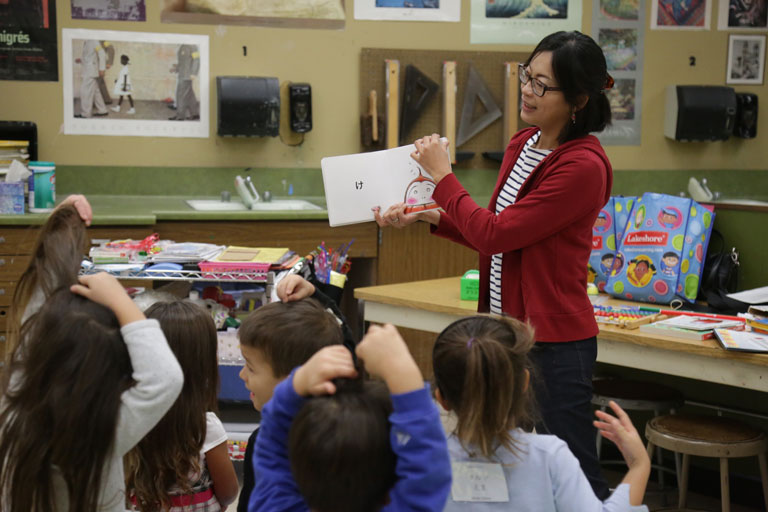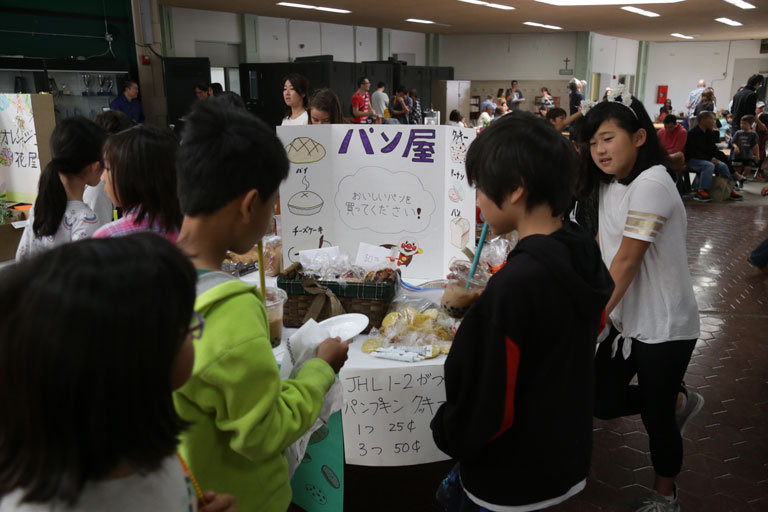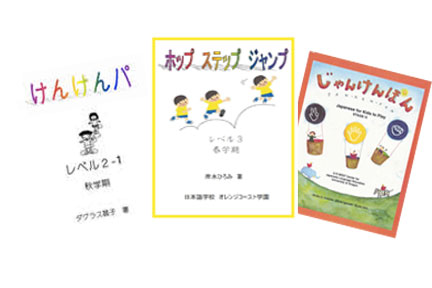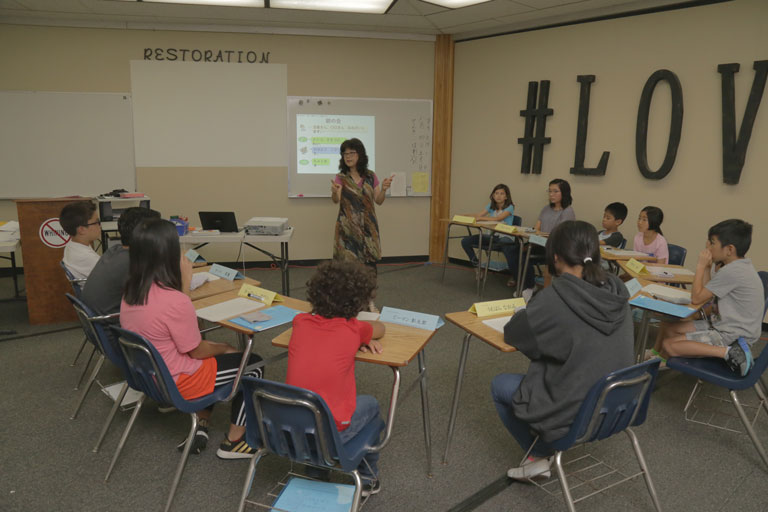Our Philosophy
OCG is committed to providing effective and innovative Japanese language education by engaging expert faculty from California State University, Long Beach and Palos Verdes High School, who specialize in teaching Japanese as a heritage language and as a foreign language, as curriculum consultants. OCG’s mission is to support children who come from families with diverse language backgrounds to acquire language and culture and grow up to be bilingual and multilingual.
OCG’s main educational philosophy is that children should enjoy learning. It is not enough to simply “have fun” or “learn.” If children understand what they are learning in class, feel a sense of accomplishment, and want to learn more, they will enjoy coming to OCG. For this reason, it is important that the curriculum is appropriate for the children’s age, thinking ability, and interests, and that all children can understand what they are learning.
At OCG, teachers, board of directors, parents, and curriculum advisors work together toward this goal of “children enjoying learning.”
Our Approach
In order to meet the diverse learning needs of children from different language backgrounds, OCG offers two curricula: Japanese as a Foreign Language and Japanese as a Heritage Language. In deciding which of these two curricula is best for a child, we consider the extent to which Japanese is spoken at home as a resource for Japanese language learning, as well as the extent to which the children speak Japanese.
OCG adopts a project-based approach to language learning in which students work and learn together as a whole school. Examples of this include events like the Harvest Festival or Candy House, where students collaboratively plan and implement a fundraising event. In the process of achieving the project’s goals, students learn the four Japanese language skills of speaking, listening, reading, and writing in an integrated manner, and develop the ability to think independently and cooperate with each other. Throughout the year, each class incorporates hands-on activities such as experiments, crafts, cooking, etc., in which students learn through the five senses: seeing, hearing, touching, tasting, and smelling. These learning activities are in line with the words of the Chinese thinker Geng Zhi: “If you are just told what to do, you will easily forget. But what you participate in and experience, you learn.”


Creating Lifelong Learners of Japanese
Students learn content better when the lessons are based on their everyday lives, are of interest to them, and are interactive. Our curriculum follows a learning approach that expands on topics that are relevant to children’s lives. Examples of these topics include family, home and school life in Japan and the U.S., play and sports, food, health and the body, and the natural environment. Many of the topics in the heritage Japanese curriculum overlap with topics studied in the local school, creating a synergistic effect that deepens students’ understanding.
Our classes are taught in a content-driven manner, where teachers use the study of a particular topic as a vehicle to teach vocabulary, kanji, and grammar. Students engage in a variety of activities, from watching videos, reading, and discussing topics to writing essays, giving presentations, and the like to acquire language skills.
In this way, OCG is committed to teaching Japanese based on research in language pedagogy and educational psychology. OCG aims to nurture students to become self-directed learners by cultivating thinking skills, and to develop a lifelong desire to learn Japanese through enjoyable learning experiences.
Development of Effective Learning Materials
All textbooks and materials used in our school are based on OCG’s educational philosophy and approach. In the JHL course, we have developed and use our own original textbooks such as Kenkenpa (Douglas, 2010), Hop, Step, Jump (Kishimizu, 2011). For the elementary level of the JFL classes, we use Jankenpon (Kataoka et al., 1999). For the high school level of the JFL classes, we use Erin ga choosen! Nihongo dekimasu (Japan Foundation, 2007) and “Doraemon no Dokodemo Nihongo” (Inahara et al., 2009).


Enhancing Teaching Effectiveness
OCG has consultants from California State University, Long Beach and Palos Verdes High School on campus who serve as co-teachers and conduct weekly classroom observations.
OCG also actively supports teacher training. In addition to regular on-campus workshops led by the consultants, OCG supports teacher professional development expenses to encourage participation in off-campus workshops. The consultants also conduct regular workshops for parents to promote school-home collaboration for educational effectiveness.



